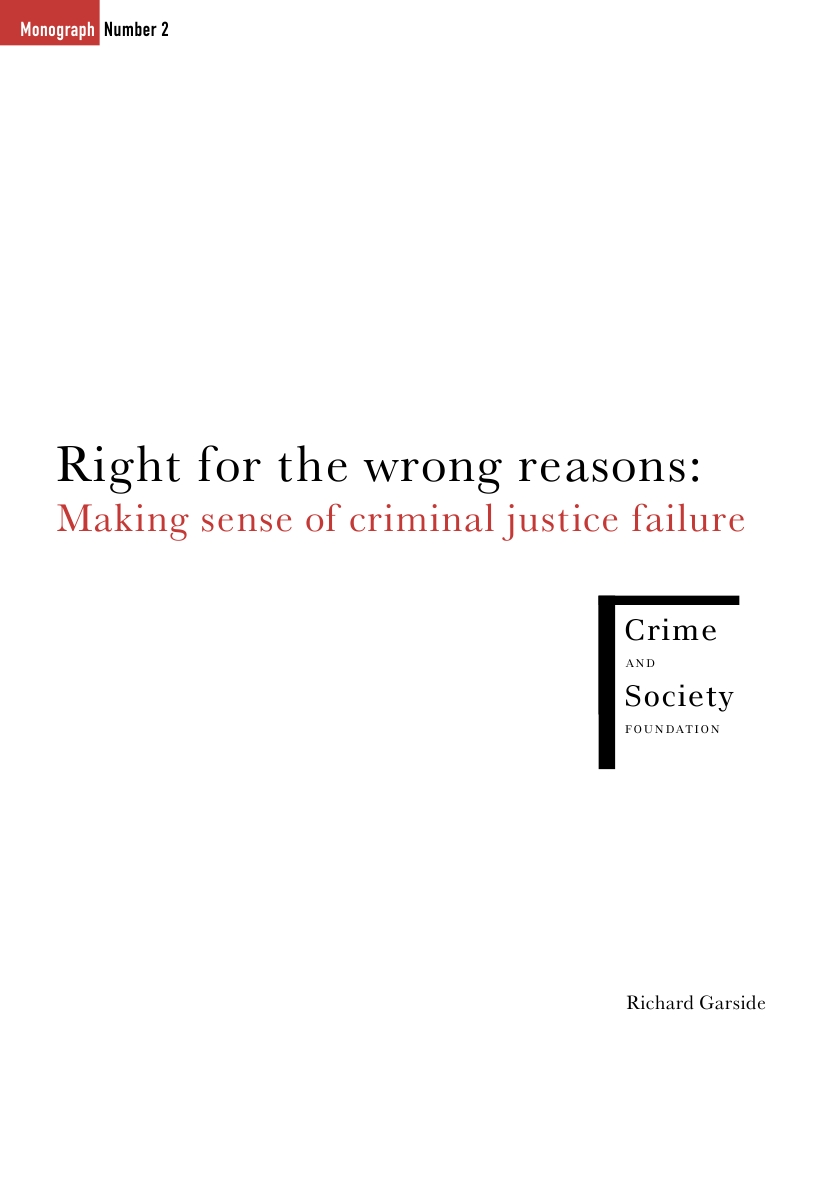The government's drive to improve the effectiveness of the criminal justice system is failing to address some of the most serious offences, so ignoring the suffering of many thousands of victims, a report from the Crime and Society Foundation today claims.
The report, entitled Right for the wrong reasons: Making sense of criminal justice failure, points out that the vast majority of some of the most serious and violent offences never end in the successful conviction of an offender, calling into question the government's faith in the crime-fighting potential of the criminal justice system.
Right for the wrong reasons points out that the government significantly underestimates the scale of failure of the criminal justice system. When the true scale of victimisation of serious offences such as child abuse and sexual assaults are acknowledged, it is clear that the criminal justice system is never likely to have anything but a marginal impact on levels and rates. Rather than pursuing a hopeless quest to drive up the conviction rate, the report argues, the government should be taking seriously the social and economic causes of crime. The real crime reduction challenge, argues Right for the wrong reasons, lies in a much broader array of social and economic changes than the criminal justice system can ever deliver.
On the day before David Cameron's widely-trailed speech on crime, the report author Richard Garside, Chair of the Crime and Society Foundation and Acting Director of the Centre for Crime and Justice Studies, said:
Bang for buck, the criminal justice system is one of the least effective means of reducing and controlling crime. Most crime never ends in a conviction. Most victims never get redress through the criminal justice system. The cross-party 'tough on crime' consensus is tough on victims too.
Our levels of crime and victimisation reflect the way that we organise our society, not the relative toughness of our criminal justice system. The way to a safer and lower crime society lies in policies to reduce poverty, challenge sexism, and tackle concentrations of power.
